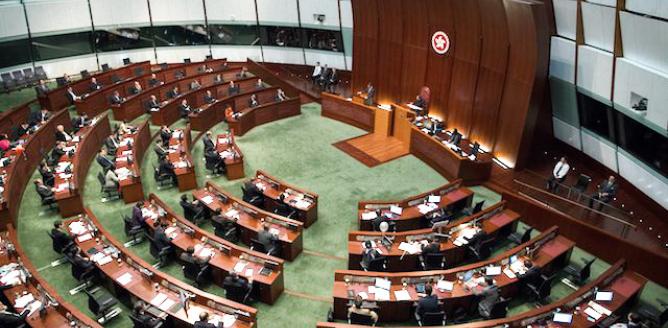Hong Kong held a fiercely contested election last Sunday to determine the composition of the 70-member Legislative Council for the next four-year session of LegCo starting October 1.
In the last two LegCo’s, there were 11 women comprising 18% of the 60 seats in 2008 and 15.7% of the 70 seats in 2012. Happily, the new LegCo will have increased female representation with 12 women in total or 17.1% of members. However, Hong Kong trails behind the UK, Australia, Canada, Singapore and Taiwan in terms of female representation within our lawmakers.
Notably, all six Kowloon West representatives - Ann Chiang, Leung Mei Fun, Lau Siu Lai, Claudia Mo, Helena Wong and Yau Wai Ching - are women from a range of political parties. The other female members are Tanya Chan, Regina Ip, Starry Lee, Alice Mak, Elizabeth Quat and Yung Hoi Yan.
Female representation is important because studies show that women lawmakers are more concerned about education, health, welfare and the environment than their male counterparts, which suggests that gender balance is important. And while LegCo has drawn much negative press for the filibustering and quorum calls that took place in the last session, its work of scrutinising bills, monitoring public expenditure and holding policymakers to account is fundamental within Hong Kong's system of governance. Despite the filibusters, lawmakers approved 83 of the 89 government bills presented to them during the last session and posed nearly 6,000 questions to ministers.
This election is also important because the stakes have arguably never been higher. Two years after the Occupy movement and increasing tensions between different political factions, the incoming LegCo offers a fresh start to building more trust and co-operation between the people, lawmakers and the Government. As Anson Chan put it in a recent talk at the Foreign Correspondents’ Club, “we need greater focus on inclusiveness and the development of broad-based policy platforms, capable of attracting support from a wide range of age groups and social sectors. We need less tub-thumping and more willingness by parties to work together on policies where there is a broad consensus on objectives”.
We also need to continue to press for a reopening of the debate on constitutional reform including the removal of institutional barriers that limit women’s representation in LegCo. Many women’s groups have long called for the reform of the functional constituency system since the functional constituencies have traditionally been male bastions. Of the 76 candidates for the 35 functional constituencies (including the 5 "Super" seats) in Sunday's election, only three were women and only one - Starry Lee - was successful. The good news is that, as Anson Chan observed, there are a growing number of functional constituencies with younger members who are committed to reform by broadening their electorate, ousting the old guard leadership and ultimately paving the way to vote themselves out of existence.
In short, Hong Kong is at a crossroads. At The Women’s Foundation, like so many people in Hong Kong, we are hopeful that the new LegCo will be cognisant of the part they can play to make the next four years a positive ground-breaking chapter in the history of Hong Kong.





















